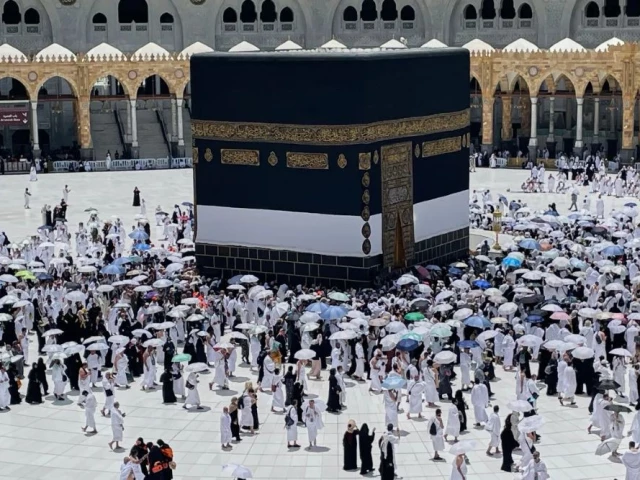The Saudi Ministry of Health has issued medical guidelines stating conditions that disqualify applicants from Hajj
The Federal Government has extended the deadline for submission of Hajj dues by three days, giving intended pilgrims a final opportunity to pay the second installment of their dues.
According to the spokesman for the Ministry of Religious Affairs and Interfaith Harmony, Muhammad Umar Butt, applicants must pay the required fee by November 19. He said failure to submit the second installment will result in cancellation of the Hajj application.
Previously, Saturday was the last day to make the payments. The Ministry of Religious Affairs had announced that all nominated banks would remain open on Saturday to facilitate applicants of the 2026 Hajj scheme to pay their second installment of dues.
The ministry also encouraged intending pilgrims to receive a computerized receipt after paying their dues. This is to avoid inconvenience or potential problems with pilgrims’ application, ensuring a smooth process.
The government scheme sends Pakistani citizens to perform Hajj, providing a road map of all the steps to be completed in the process. The government also provides guidance and packages to facilitate citizens during their journey. The scheme includes the traditional 38 to 42-day packages, as well as a shorter 20 to 25-day option, with estimated costs expected to be between Rs1.15 million and Rs1.25 million.
The first phase of the scheme started in early August this year and received more than 70,000 submissions from eager Pakistanis. The second phase started on August 11, with applicants advised to hold on to their passports until at least November 26, 2025. The Hajj scheme operates on a first-come, first-served basis. Once payment of dues is completed, successful applicants will be able to begin their sacred journey.
A day earlier, Saudi Arabia imposed strict medical conditions for the 2026 Hajj, preventing a large number of seriously ill pilgrims from performing the Hajj and introducing a deportation policy for those arriving in an unfit condition. According to the Saudi Ministry of Religious Affairs, any pilgrim found medically unfit will be sent back to their home country and the cost of repatriation will be borne by the pilgrim.
The Saudi Ministry of Health has issued detailed medical guidelines specifying conditions that disqualify applicants from Hajj. The ministry said people with kidney diseases, including those on dialysis, will not be allowed to perform Hajj in 2026. It added that heart patients who are unable to endure physical exertion are also excluded.
Pilgrims suffering from chronic lung or liver diseases, serious neurological or psychiatric conditions, weak memory or dementia and other significant disabilities will also be prohibited.
Restrictions have also been placed on the elderly who suffer from serious age-related diseases, including Alzheimer’s and Parkinson’s diseases. Pregnant women and those diagnosed with whooping cough, tuberculosis or viral hemorrhagic fever are also prohibited from traveling to Hajj. Cancer patients have also been declared excluded under the new guidelines.
The Ministry of Religious Affairs said doctors will be empowered to prevent unfit people from traveling before departure. Saudi monitoring teams will verify the authenticity of fitness certificates and ensure that only pilgrims who meet essential health standards proceed to the holy sites.



